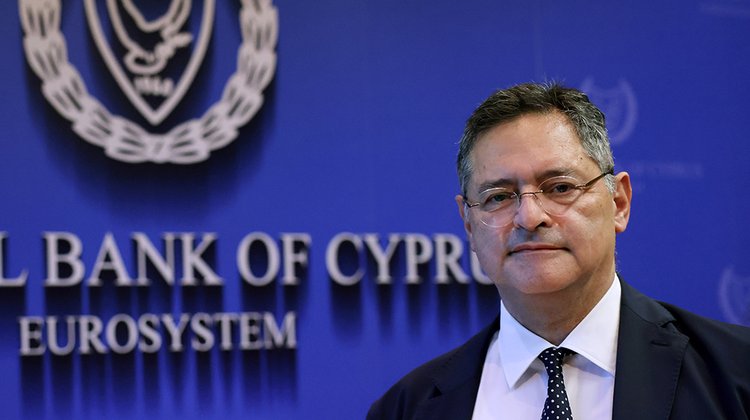Patsalides: "The outlook for the euro area remains highly uncertain"
15:22 - 21 November 2024

Governor of the Central Bank of Cyprus Christos Patsalides has shared his view of the European economy, including the future aspects of monetary policy and the role of the banking system in the face of increased uncertainty.
Speaking at the Economist 20th Annual Cyprus Summit, Patsalides began his address by focusing on what he described as the current discussion on interest rates.
“The Governing Council of the ECB, at its meeting in October, advanced its policy easing as our assessment of the latest data confirmed significant progress in the disinflationary process, with inflation in October standing at 2.0%. Going forward, the pace and magnitude of further rate cuts remain a subject of ongoing assessment,” he said.
Patsalides continued that, “While growth in the euro-area economy has been anaemic for some time now, the approach to rate cuts must be gradual and data-driven. Inflationary pressures, particularly those stemming from potential supply shocks, still pose risks. There is still considerable uncertainty with regard to energy prices and services inflation continues to be sticky at 4%. Moreover, trade tensions are rising. If trade restrictions materialise, the outcome may be inflationary, recessionary, or worse, stagflationary.”
According to the governor of the Central Bank, “If incoming data and new projections in December confirm our baseline scenario, there will be room to continue lowering rates at a steady pace and magnitude. In general, striking the right balance is essential, as overly aggressive rate cuts could risk reigniting inflationary pressures, while cutting rates too slowly might unnecessarily hinder economic recovery and dampen market confidence. At this juncture, monetary policy is a balancing act, and these considerations confirm that maintaining optionality without any predefined path is the prudent avenue for our policy calibration.”
Patsalides also offered up a few remarks on the European banking sector, which, he said, |in recent years, has shown remarkable resilience despite facing significant economic and geopolitical turmoil.”
“The latest key indicators of June 2024, support the aforementioned with the liquidity ratio reaching 163,2%, the CET1 ratio increasing to 17,5% and the Non-Performing Loans ratio remaining relatively steady at 1,9%. It is fair to say that the Single Supervisory Mechanism, celebrating this year its 10-year anniversary, is delivering exceptional outcomes,” he noted.
Patsalides went on to note, “However, the outlook for the euro area remains highly uncertain, shaped by tighter financing conditions, heightened geopolitical tensions, and significant rising risks, such as climate and cyber risks. Both the SSM and the European Banking Authority have incorporated these risks into their supervisory and regulatory priorities. Banks are required to align their practices with the relevant guidelines and take the necessary steps to incorporate these risks in their business models. The ECB's strategy for the next three years is focused on addressing these challenges effectively.”
“Yet, as is, the banking sector alone cannot drive the transformative changes needed in the European economic landscape,” he continued, elaborating, “The pursuit of a stronger and more competitive European economy requires the establishment of a truly integrated capital markets union and the completion of the banking union with the introduction of a common deposit guarantee scheme. The alarming reality is that Europe is falling behind with much lower productivity levels compared to the United States. This challenge is further intensified by growing competition from other economies like China. This requires bold structural reforms to effectively channel savings into productive and innovative private investments.”
As the Central Bank of Cyprus Govenor continued, “The Draghi Report provides the right recipes to achieve these goals. It also sheds light on key weaknesses in the European economy and offers actionable guidance. At the EU level, deeper capital markets and financial integration will close the innovation gap, particularly by strengthening the European venture capital market, which significantly lacks behind that of the US. In fact, The Financial Stability Review of the ECB published yesterday, shows that the US venture capital market is five times larger than that of the euro area. Diversifying financing options for European firms, beyond traditional bank lending, is also crucial. Encouraging IPOs and equity investments for start-ups and scale-ups can be achieved by reducing regulatory barriers, especially in advanced digital technologies.”
He went on to note that, “Additionally, having a single supervisor for EU capital markets, would ensure consistent risk treatment, reduce fragmentation, and boost confidence in EU capital markets—key steps toward realizing a unified capital market.”
“Overall, as we navigate the broader euro-area monetary policy landscape, the resilience of the European banking sector remains a cornerstone for ensuring stability in the face of economic uncertainties,” the Governor concluded.

